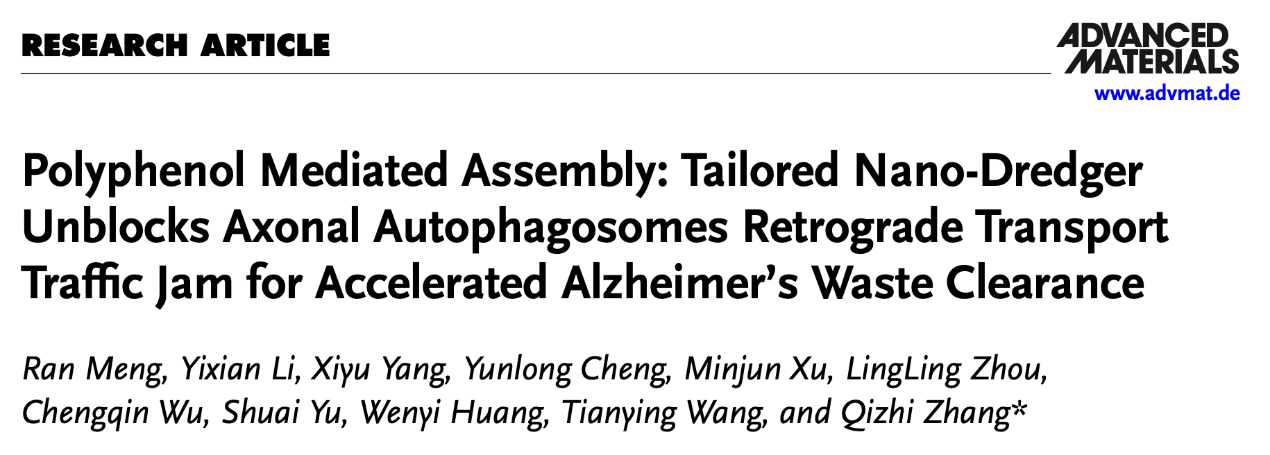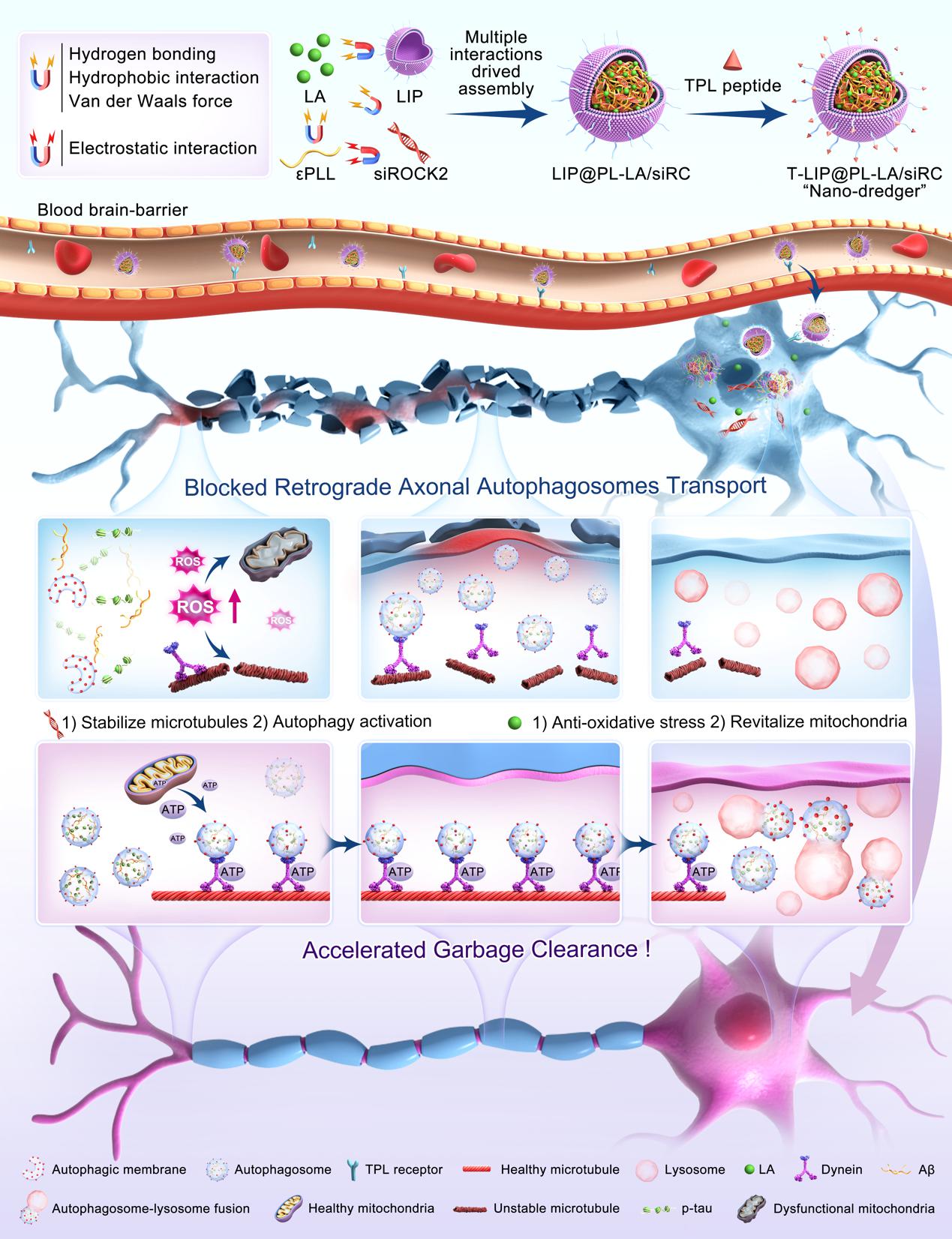

A breakthrough study conducted by Professor Qizhi Zhang's group from the School of Pharmacy at Fudan University has unveiled a novel "Nano-dredger" technology that addresses axonal autophagic dysfunction—a key pathological feature of Alzheimer's disease (AD). The research highlights how axonal autophagosome retrograde transport is obstructed in AD, severely impacting neuronal degradation of toxic proteins and leading to autophagic stress and neuronal death. This innovative approach offers hope where current therapies fall short.
Nano-dredger is designed to co-deliver siROCK2 and lithospermic acid B (LA), a polyphenol compound, to counteract multiple pathologies causing autophagosome axonal transport disorders. By effectively reversing oxidative stress, ATP depletion, autophagy blockage, and microtubule disruption, this strategy successfully clears obstructed axonal autophagy, enhancing autophagic flux. Consequently, it reduces pathological protein accumulation and improves cognitive function in 3×Tg-AD transgenic mice models, demonstrating the potential of axonal autophagy regulation as a promising new therapy for AD.
A significant discovery within this study is the identification of various interactions—hydrogen bonding, van der Waals forces, and hydrophobic interactions—between LA, cationic polymer ε-poly-L-lysine (εPLL), siRNA, and anionic liposomes (LIP). Leveraging these properties, researchers have developed a novel polyphenol-driven nanoparticle assembly system: (1) LA-assisted εPLL compaction of siRNA: Forms uniform nano-complexes (PL-LA/siR) with reduced cationic material usage and associated toxicity. (2) Encapsulation into LIP: Creates LIP@PL-LA/siR complexes, enhancing overall stability and biocompatibility.
Compared to ternary complexes formed using free polyphenols like EGCG to assist cationic materials in gene compression, LIP@PL-LA/siR exhibits notable advancements: (1) Improved stability and safety suitable for multiple administration routes. (2) Provides sites on LIP for functional bio-membrane fusion or functional group modification, aiding targeted delivery. (3) Flexible adjustment of LA/siRNA ratios facilitates tailored combination therapies for specific disease needs.
The findings were published in Advanced Materials titled “Tailored Nano-dredger Unblocks Axonal Autophagosomes Retrograde Transport Traffic Jam for Accelerated Alzheimer's Waste Clearance”. Professor Qizhi Zhang from the School of Pharmacy at Fudan University is the corresponding author. Ran Meng, a 2021 Master student, and Yixian Li, a 2022 PhD student from the same institution, are co-first authors. The research was supported by National Natural Science Foundation of China.
